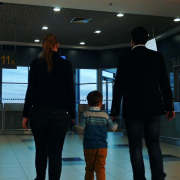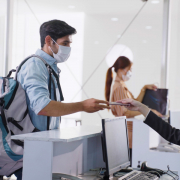Archive for month: November, 2021
Do I Qualify For Permanent Residency In South Africa?
/in Archived, News /by xp-adminThe Department of Home Affairs (“DHA”) has also announced that it will be opening its doors to permanent residence permit (“PRP”) applications from January 2022. If you are a skilled foreigner on assignment in South Africa, there has never been a better time to apply for your PRP.
Applying for permanent residency is an incredible undertaking. Because it affects not only the applicant but their entire family, it could be the biggest decision of their life. It is important to wrap your head around the finer points before applying for permanent residency.
The advantages to becoming a permanent resident
As a PRP holder you will be able to permanently live and work in South Africa without needing to renew your visa every time it reaches its expiry date. You will have the right to engage in business, own property, study, travel in and out of South Africa, and do all activities that a citizen is permitted to do. You will further be able to apply for a South African national identity card, which is helpful when you need to rent property, buy a car or open a bank account. While a PRP has no expiration date, you must be resident or physically present in South Africa at least once every three years. A permanent resident permit will not jeopardize your citizenship in another country.
Unfortunately, being a permanent resident in South Africa does not entitle you to South African citizenship, which means you will not be able to vote in local elections. Citizenship is an entirely different application process with different requirements. You will also not be able to apply for a South African passport.
Types of permanent residency
There are numerous categories under which to apply for a PRP. As with any other permit, the applicant is subject to the conditions of the chosen category the permit was issued under. For example, if you obtain permanent residency through retirement, then you must prove that you have no intention to work in South Africa. You would also have to prove that you are financially able to retire.
When do you qualify for permanent residency?
You must have lived in South Africa as a worker with five years of continuous work permits before applying for a PRP. It’s important to note that you will never automatically qualify for permanent residency after living in South Africa for five years.
Foreigners might qualify for direct residency in special circumstances where they:
- Have critical skills or qualifications that are in short supply in South Africa
- Want to open their own business or invest in an existing business in the country
- Wish to retire and can prove that they are able to sustain themselves
- Obtained a permanent job offer in South Africa
- Is financially independent and does not need to work for a living
Holders of a Critical Skills Visa or a skill/qualification listed on the Critical Skills List, who also have a permanent offer of employment, have a first-mover advantage in seeking appropriate immigration advice. This will ensure that all the necessary steps are taken to submit their PRP application before January 2022, thereby avoiding the long lines.
Spouses, dependents or close relatives
A direct permanent residence permit is obtainable to the spouse or life partner of a South African citizen or permanent resident. They would, however, be required to demonstrate that they have been in a relationship for at least five years, either through cohabitation or a legal marriage certificate.
Legal dependents of a South African citizen or permanent resident, which include children under the age of 18, as well as relatives meeting the first level of kinship, may apply for a PRP.
Application process
Permanent residency can only be obtained through a formal, and sometimes cumbersome, application process, which could take anything from 6 to 12 months before being approved. It should be noted that each application will undergo scrutiny by the DHA. Applicants are vetted and processed impartially to determine whether they will contribute to the South African economy.
Approval is subject to the applicant meeting the prescribed criteria in the Immigration Act. If you are classified as a prohibited person or declared undesirable, you must submit a detailed motivation why you should not be denied approval. In the event where documents are missing or incomplete, the process can be delayed even further.
There are many finer points to consider when applying for a residency permit. For example, it is advisable to be present in South Africa when applying for a PRP. You must never apply for permanent residency when you are in South Africa on a temporary tourism visa.
South African tax: a word of caution
The South African tax system is a residence-based system, meaning your tax obligations will be determined by your residency status. If you are considered tax resident, you are liable for tax on your worldwide income, whereas non-residents are only subject to tax on South African sourced income.
You are considered a tax resident when you are “ordinarily resident” or have sufficient physical presence to trigger residency. In terms of the former, you will be considered resident if objectively viewed you treat South Africa as your real and permanent home. The physical presence test is measured over a six-year period and applies if you are physically present in South Africa for more than 91 days in total in the sixth and previous five tax years and more than 915 days in total during the previous five tax years.
Critically, if you apply for a PRP, you effectively declare that you intend to reside in South Africa permanently, which will trigger residency under the “ordinarily resident” test. Therefore, while permanent residency may appear to be a good idea from an entry standpoint, it may be considered a less favourable choice from a holistic planning standpoint. An immigration specialist with a keen understanding of the fiscal aspects of South Africa, should be able to advise on tax planning as part of their service.
To avoid the potential pitfalls when applying for a permanent residence permit, it is important to seek advice or assistance from an immigration specialist who is well-versed in the South African visa or permit application processes, as well as the South African taxation system.
The Expat Spouse: Unable To Work While Their Partners Work Abroad
/in Archived, News /by xp-adminSpouses or life partners of expatriates are often referred to as “the trailing spouse” because they followed their partners wherever they went. While the role has long-since departed from being a gender-specific one, there has also been a rise in dual career couples.
According to Marisa Jacobs, Director at Xpatweb Expatriate Solutions, this is a common problem that couples encounter when they find work offshore. “Whether coming into South Africa or working abroad, spouses often do not want to put their careers on hold, which is why they are surprised by the restrictions on their visas.”
The concerns facing partners or spouses of expatriates
If spouses wish to work in the country where their partners are on assignment, they are often required to apply for their own work permit, which is subject to approval from that country’s immigration services. This could mean having their qualifications assessed or first obtaining an offer of employment.
Slow work permit processing times, complex human resources procedures, or foreign immigration services not yet recognising non-married partners or same-sex couples, are some of the hurdles currently being encountered.
This uncertainty could hinder a spouse’s ability to integrate or settle into their new surroundings. It places an additional burden on the relocating family adding to an already stressful life event and assignment pressures.
The concerns facing unaccompanied expatriates
Many couples resort to staying in two jurisdictions, especially where the spouse or partner is unable or unwilling to put their career on hold and will not be able to work in the host country because of visa limitations. However, this too can put a lot of strain on a family.
Besides being separated from their family, the stress of being isolated in a foreign country while your family is so far away, can become unbearable. Frequent travel to visit your family can be expensive and cause some friction with their employers. The inability to adhere to required days in or out of a country, could also have serious tax implications.
“We have seen some governments recognising partners of international assignees and allowing them to work in the host country, especially where the main applicant holds a scarce skills visa to ensure they continue to attract those candidates who the country is most in need of. In South Africa this is however a more far away reality due to the high unemployment numbers. Different strategies are required on a case-by-case basis with some advance planning to assist where spouses are keen to pursue careers while ‘on assignment’,” says Jacobs.
The Permits Foundation Survey
The Permit Foundation, a not-for-profit organisation, has been campaigning to improve work permit regulations for partners of expatriates over the last ten years. Since their inception in 2001, their efforts have contributed to 35 countries implementing legislation to enable dependant work access. With a focus on achieving legislative change at government level, they’ve had a surprisingly favourable response from employers with expats under their employ.
In South Africa the Foundation has been making the recommendation that consideration be given to the issue of access to employment for legally recognised family members of critical skills visa holders and intra-corporate transferees. According to Helen Frew, Director of Permits Foundation, “Particularly in light of COVID -19, the added assurance before the decision to move, that both members of a dual careers couple can work, would help to make a huge difference to employers and mobile families and the experience from other countries shows that there would be no adverse impact on the local labour market.”
The Foundation’s first HR survey conducted in 2011 revealed that 96% of employers agreed that partners of expatriates should be allowed to work in that host country. Many companies are already aware of the concerns expats and their partners are facing, and know they run the risk of assignments being terminated prematurely because of it. As a result, many have started offering dual career support initiatives to promote family-friendly policies or to increase staff mobility and well-being.
Their latest survey is underway and promises to deliver remarkable insight into the challenges faced by expats and their partners. Expatriates and global mobility specialists are encouraged to share their views about mobile spouse and partner work authorisation.
“Permits Foundation’s work is underpinned by a strong evidence base and South Africa is a priority country for the Foundation. To help us highlight the issue of work access going forward, it is very important to us that spouses of international employees participate in our International Dual Careers survey, which runs until end November,” concludes Helen Frew.
Digital Vax Cards To Simplify Post-Pandemic Travel
/in Archived, News /by xp-admin Karen Maartens
Karen Maartens
Travel Manager
With the holidays fast approaching, tourism departments are mining for visitors to boost flailing hospitality sectors, while travel agencies are battling to jumpstart commercial air travel. International travel has been reduced to a trickle, but it is sure to grow into hordes of travellers within the next couple of months, which will include both tourists and professionals.
Large-scale vaccination card corruption
One of the main purposes of introducing a vaccination certificate is to provide travellers with ease-of-access when crossing borders or passing through security checkpoints, instead of being subjected to long waiting periods and bouts of quarantine.
The authentication of physical vax cards has proven to be time-consuming and could create congestion at airports, especially when travel returns to normal. After reports of thousands of fake Covid-19 vaccination cards being sold on the black market, it became clear that the certification process was also too corruptible. Since then, most countries have introduced their own government-backed digital certification system to regulate travel in and out of their borders.
One of the most effective methods used to prove someone’s vaccination status, is with a QR-based digital code that can be stored on a mobile device for record-keeping. Due to international-standard security measures and fraud detection, the electronic certification process is far less corruptible and available to anyone with a smartphone, which makes it the preferred choice for corporate travellers running multiple business trips.
South Africans start planning their UK trips
Until recently, South Africa has been stuck on a card-based certification system. This has contributed largely to our controversial non-removal from international “red-lists” which barred South Africans from gaining entry to certain countries, like the UK. After months of querying South Africa’s inclusion on the UK’s naughty list, it was announced that we will be removed from 11 October 2021 and allowed to travel to the UK, provided that travellers adhere to strict Covid travel regulations.
This comes days after the Minister of Health, Joe Phaahla, confirmed that South Africa has begun rolling out digital vaccination certificates which can be used for local travel within South Africa, as well as certain countries abroad. It will be an electronic travel document, which makes it no different to an airline ticket or a yellow-fever certificate. As South Africa readies itself for an influx of UK visitors, the implementation of an electronic vaccination certificate for local travellers could alleviate the potential strain on airports.
However, international travellers hoping for digital vax cards that will open all the doors, might be in for a long wait. The biggest trouble facing this initiative, is the lack of uniformity in the various types of digital certification. The fact that there is not yet a standardized digital certificate that is recognized and usable by all jurisdictions, disqualifies it as a vaccination passport.
Traveller health information stored on a database in one country is often inaccessible to authorities of the country they wish to enter, which confines the certificate to the same verification processes of physical vaccination cards. The only difference with a government-backed digital certification, is that it will be viewed as more authoritative and will, therefore, be accepted by some countries.
Post-pandemic travel has become complex and requires excessive research and planning, which puts a lot of the responsibility on the individual or the travel agency assisting the individual. That said, a skilled travel agent should be able to provide more clarity about the entry conditions of the country a traveller intends to visit.
For any assistance with guidance on your future travels please feel free to contact our travel experts at Xpatweb Travel.
Covid And The Current Global Movement
/in Archived, News /by xp-adminTravel from South Africa is closely monitored. Daily commuters from neighbouring countries are allowed entry, but exit between other countries are subject to compliance with protocols relating to-
(a) Screening for Covid-19 and quarantine or isolation, where necessary;
(b) The wearing of a face mask;
(c) Transportation; and
(d) Sanitization and social distancing measures as per the relevant health protocols on safety and prevention of the spread of Covid-19.
Travellers arriving to other countries must provide a valid negative Covid test, which was obtained less than 72 hours prior to arrival.
In the event of the traveller’s failure to submit a valid negative Covid test, they will be required to take an antigen test on arrival. If the traveller is positive, they will be required to isolate at their own cost for a period of 10 days, depending on the destination.
Covid and visa applications within South African embassies and consulates
Recent changes to visa application processes in South Africa, resulted in additional requirements being implemented to ensure that only essential travel is conducted. This could mean that visa requests are no longer being treated within embassies or consulates, but rather within the Immigration Department inside the country of destination. The processing time of visas also doubled due to strict review processes being conducted within each embassy or consulate. Countries where the number of Covid infections have decreased, are currently considering tourism activities, though it depends on the country where an applicant originates from.
Issues experienced with visa applications
Where some embassies and consulates in South Africa have started accepting visa applications, appointments are still difficult to come by and stringent requirements further retard the process. USA and Canadian embassies and consulates allow the capturing of visa applications, but appointments have not yet been confirmed.
As an Immigration Services Provider, we highly advise all travellers to discuss their travel plans with experts within the industry. This will avoid obtaining negative outcomes on applications.
Please be advised that, even though we face challenges based on the above, Xpatweb still delivers visas and permits throughout Africa, especially in Botswana, Angola, Mozambique, DRC, and Zambia. Please contact us should you need assistance
FIND US
Johannesburg
17 Eaton Avenue,
Bryanston, Johannesburg,
Gauteng, 2191
South Africa
George
55 York Street
Dormehls Drift
George, 6529
South Africa
CONTACT US
Telephone:
South Africa: 011 467 0810
Postal:
PO BOX 35046
Northcliff
2115
IN THE NEWS
- Another Positive Move To Attract More Tourists To SA
- Bringing in the Bomb Squad at Home Affairs
- How Home Affairs’ Immigration Reforms Could Drive SA’s Growth in 2025
- Phindiwe Mbhele on Remote Work Visa: Splendid Cape Town is wooing more and more digital nomads
- Cape Town Shines, and So Does South Africa’s New Critical Skills Visa Overhaul





